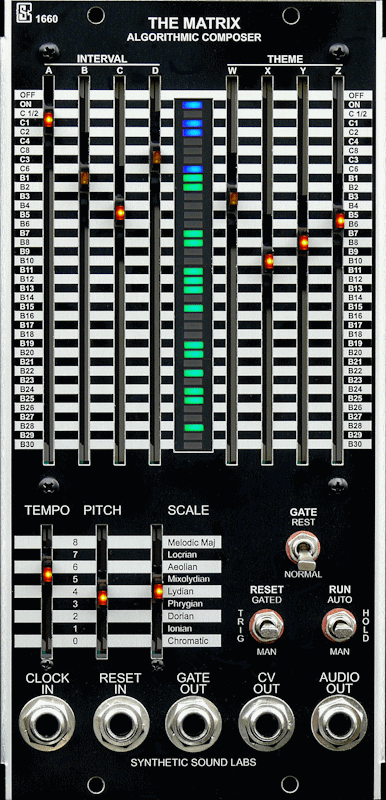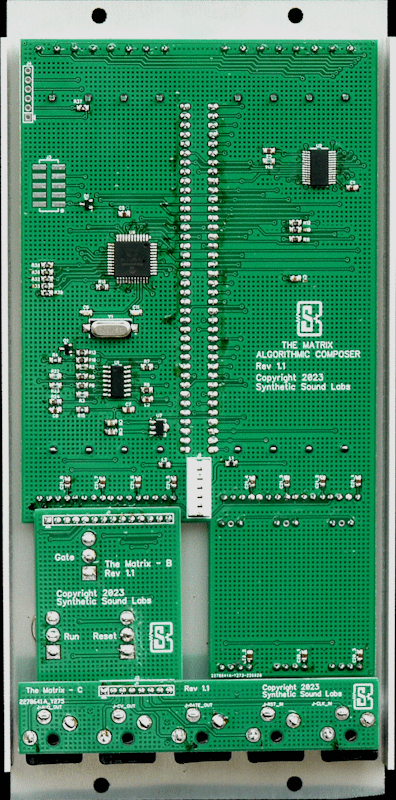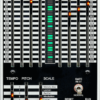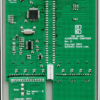Description
Introducing “The Matrix” by Synthetic Sound Labs – a tribute to the original Triadex Muse developed by Edward Fredkin and Marvin Minsky from M.I.T. around 1969. This groundbreaking marvel revolutionized the world of art and music.
Possibly best described as a deterministic algorithmic sequencer, The Matrix can play up to 16 notes in 9 different user-selected scales. Notes and sequences are programmed by use of 8 sliders. Each slider has 38 active positions, each of which is associated with an LED. Four sliders on the left control the sequencer’s pitch, and the four sliders on the right assign binary feedback into the sequence, creating musical permutations that make The Matrix so unique.
The TEMPO slider controls the speed of the sequence, and this internal clock signal is also brought out to the GATE OUT jack. An external clock (CLOCK IN) can override the internal clock thus providing more flexibility with a range up to about 2KHz.
Expanding upon the original Muse, The Matrix has a 9-position user selectable SCALE slider which affects both an internal square-wave tone generator and the CV OUT jack. The internal tone is available at the AUDIO OUT jack, and the CV OUT jack is approximately 1V/OCT. The PITCH slider controls the pitch range of the internal generator over about 5 octaves and does not affect the CV OUT. A RESET IN jack restarts the sequence from the beginning and is affected by two positions of the RESET switch.
History
The original Muse is the subject of U. S. Patent 3610801 and was a featured exhibit for years at the Museum of Science in Boston. More info here: https://en.wikipedia.org/wiki/Triadex_Muse
Built with digital TTL logic circuitry of the day, an original Muse in working condition is extremely rare, as only about 280 were reportedly made. Here’s an excellent article by Don Tillman, who also created a free online JavaScript version of the Muse. http:// https://www.till.com/articles/muse/
Now, you too can transcend the boundaries of imagination and be empowered to create awe-inspiring compositions that resonate with your soul.
Inputs
- CLOCK IN (External clock input)
- RESET IN (Starts sequencer back at step 1)
Outputs
- GATE OUT (Sends pulse when sequencer changes state. Follows width of external clock, or 50% width for internal clock)
- CV OUT (About 1V/OCT. Not affected by internal oscillator Pitch control)
- AUDIO OUT (50% duty cycle internal oscillator. About 5 octave range)
Features
- CV OUT covers about 2 octaves depending on scale setting with 1V/OCT
- Sequences are created using the THEME controls. Uses a modified LFSR algorithm to generate patterns.
- Gate REST interrupts the GATE output at certain pitch intervals, depending on scale settings










Reviews
There are no reviews yet